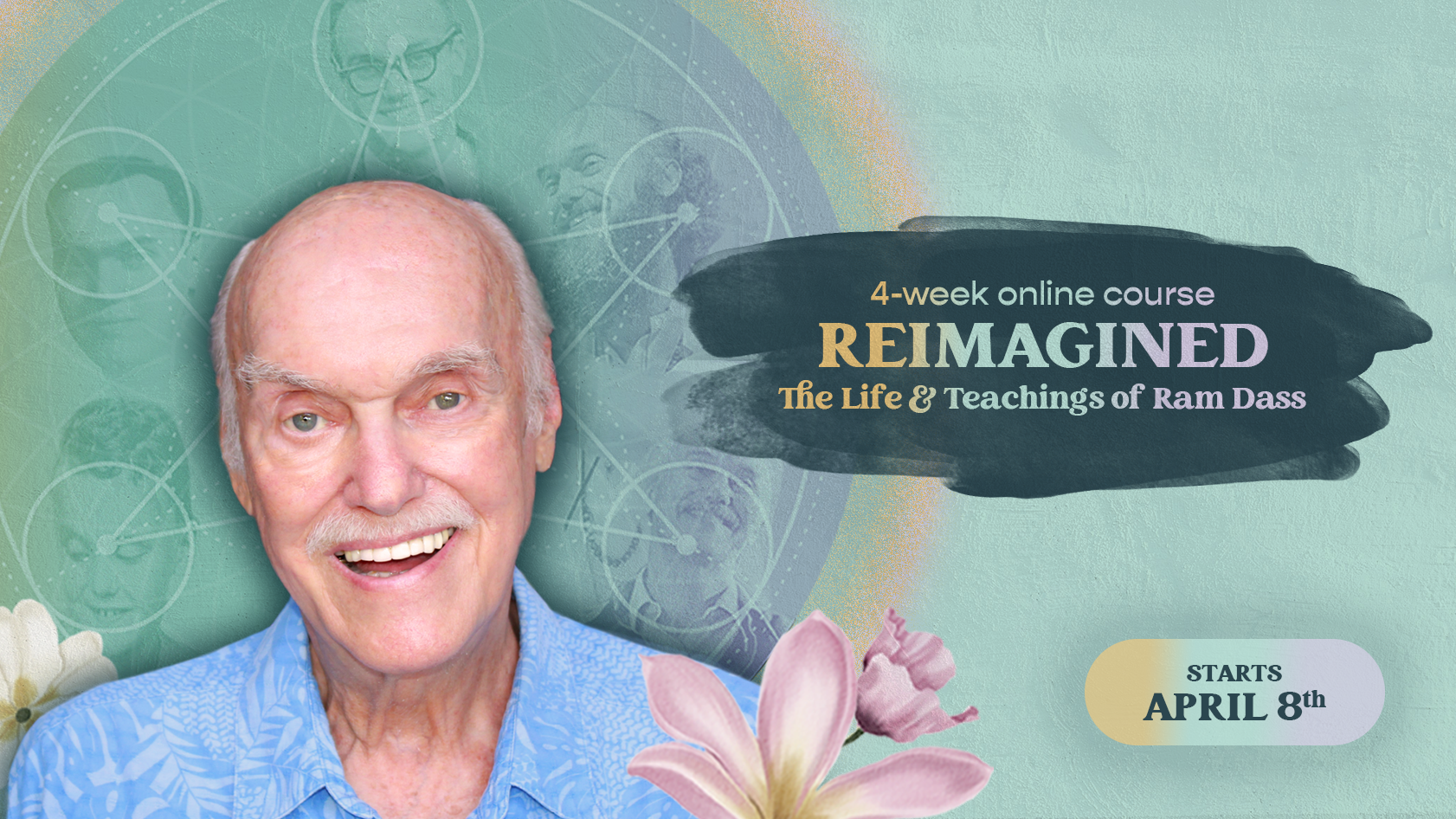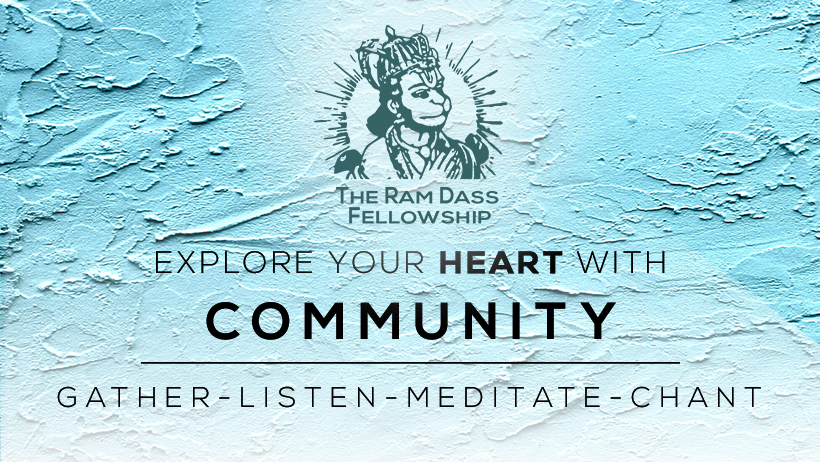KK Sah has been a close family friend of Ram Dass since he first met Maharaji in 1967. It was KK who translated for Ram Dass in his meetings with Maharaj-ji and who also took Ram Dass into his home and introduced him to Indian family life. When the other westerners arrived in India during Ram Dass second trip KK served as mentor, friend and brother to all and showed them true compassion and love…
In the West the word “surrender” means the act of yielding to the power of another or the acknowledgement of defeat. This does not, in any way, reflect the true meaning of the process of surrender in the Hindu spiritual tradition. As far as my own knowledge, I have not found an equivalent English word for the process which, in Hindi, is called sharanagati – the process of surrender.
Sharanagati is a combination of the two words shara, meaning shelter, and agat, meaning one who has come to be sheltered. The person who has come to the place of refuge or shelter can be called a sharanagat. Only a person who is afraid of worldly misery comes for relief to the shelter of a powerful entity. But this phrase cannot express the emotional vibrations that the word sharanagat bears in it.
At times when someone who is afraid takes the shelter of any person or place, he is fully dependent upon that shelter, and he does not even think of any other help for his liberation. In this state of shelter, he surrenders all of his body, mind and other sense organs to the situation. Like in the situation of a drowning person, he surrenders himself to the person coming for his rescue. In the situation of a person terrified of the scorching heat from the sun during peak hours of the summer noon, if he finds a tree for shelter then he cannot ignore it at any cost. The mental state of that drowning person, or the peace felt at the moment the overheated person finds relief cannot be expressed in words. But, even these worldly examples are not complete in the real understanding of a sharanagat.
Sharanagati, in its real sense, is applied for taking the shelter of that Absolute Power called Supreme God. Until we have full faith in the existence of that Absolute Power, we cannot feel its blessings upon us. Just like, when we are enclosed within the space of a dark room, even during the daytime, we cannot feel the blessings, or even the existence of sunlight. To feel and take benefit of the heat and light of the sun, we will have to open the doors and windows of our living place.
Absolute Power can be defined as ‘God’, ‘Ishwar’, ‘Allah’, ‘Paramatma’ and so on. It makes no difference what name you give it according to your faith and convenience. Like with water, you can name it whatever you like, but it will quench the thirst of all within the universe irrespective of their language and social status and faith. There is no difference whether you call it water, jal or paani for its ability to quench thirst remains the same throughout the entire universe. Absolute Power is the same: Its grace is always available to all without any partiality.
For a thirsty person there is no substitute for water. Even if you give him any delicious dish, he will reject it until he gets water. This is also a form of sharanagati, for his life, in that moment, is fully dependant on water, and at that time he is only thinking of water – nothing else. Without water his survival is doubtful. He will try all his efforts only to get water. Even the most valuable things of the universe cannot attract him at that moment; he will give away all his valuables in exchange for water at that time. Such is the condition of a true sharanagat to God: he does not want any materialistic thing of this world in exchange for the shelter of God. But, the care of all of the devotee’s worldly things is taken care of by that Absolute Power itself. As per the Gita: “To those men, who worship Me alone, thinking of none but Me, who are ever-devout, I provide them gain and security.”
Sharanagati defines a true devotee of that Absolute Power because he or she does not even think about help from anyone other than God. All the sense organs, body, mind and ego, have gone to the shelter of God. This situation of complete surrender is easy to speak of but it is very, very difficult, almost impossible, to achieve by a common person who has not taken complete shelter of the Absolute Godhead.
Sharanagati can only be achieved by faith and regular practice, and it may take many births altogether. However, with the grace of God, it can be attained in one lifetime, for He extinguishes all previous karmas. This is only possible when we take complete shelter of that Absolute Power. As per the Gita: “Abandoning dependence on all duties (dharma), takes refuge in Me alone. I shall liberate you from all your sins, therefore grieve not.
Refuge in God means to identify the Self with God and to accept the entity of God only. First of all, to identify the Self with God we will have to identify our own Self i.e. “Who am I?” We are always under the influence of illusion, and due to the effect of this illusion, we always remain under the effect of the ignorance of our true Self. We consider ourselves as this perishable gross body which is made up of a combination of the five insentient elements (earth, water, fire, ether and air.)
It is the experience of all living beings that we can see worldly things with open eyes, but the eye itself cannot be seen without the help of a light reflecting element like a mirror or water. Similarly, two things are very near to our Oneness – God and Death. To realize and see them we will have to use a different technique. To realize death, no efforts are required, as we see the death of many living entities daily. Thereby we realize that death is essential to all, and even then we do not apply this fact to ourselves due to ignorance. We only feel fear of it. Due to this ignorance we always call this gross body ‘I’ which is not at all the reality. This body is changing all the time since its origin is of this world. But when you identify that “I” with the soul you identify with that which is unborn/undying. The body is perishable but the I is imperishable. When the I departs from the gross body, then it cannot express itself. The departing I cannot be seen with any worldly instrument, and leaves the gross body along with its subtle and casual body. As per the Gita: “The duped do not know the soul, having identified itself with three gunas, departing from or dwelling in the body, or enjoying the objects of senses, but they who possess the eye of wisdom behold it.”
So due to the misunderstanding of the ego identified “i”, the word sharanagati does not bear any resemblance to the word ‘surrender’. We are almost always under the clutches of the ego. To realize the real meaning of sharanagati we will have to fully dissolve the ego, for it creates a wall between our real status and that Absolute Power-the Absolute Power which the ego is itself part and parcel. Is not a drop of seawater itself a part of the ocean and having all the qualities of the same ocean?
In the traditional meaning of the word ‘surrender’, a culprit surrenders himself to the power of the state, the police, or a similar authority that is authorized to punish according to the law-of-the-land and the gravity of the offense. Whereas, if the same culprit takes shelter with the king of the territory, under whose law and order the culprit is to be punished, the king can forgive his offense because the king has the full authority to change or interpret the law or to excuse any person. As we have seen in this world, a culprit, against whom there is evidence to prove his offense and has been punished with life imprisonment by a designated court, can obtain complete release under the mercy appeal by the supreme authority of the land. This is the effect of taking shelter of the supreme authority. If such things can happen in our worldly life, then such things, beyond our imagination, can happen in the territory of the supreme Absolute Power. The phenomenon of the Absolute Authority’s ultimate power has been assured of in the Gita. “Take refuge in Me alone, I shall liberate you from all your sins, therefore grieve not.”
So, the only condition required for such a liberation is that one should take the exclusive shelter of that Absolute Power – the Absolute Power which has been defined as: “He, the Supreme Authority, [who] can do things capable to be done, incapable to be done, or things against anything whatsoever.” No help is expected from anyone other than He. Only under these circumstances can one be called as sharanagat.
– K.K. Sah
Photo by Simon Gulergun











Ah, wonderful wonderful!
“Take refuge in Me alone, I shall liberate you from all your sins, therefore grieve not.”
From the Gita could just as easily be from the Christian bible… All is One.
Yes, All is One!!!!
I met K.K. Sah at a Ram Dass retreat. He was immensely kind and caring to me, pointing out the best version of the Ramayana and the power of the story within. He is the epitome of “Loving Awareness”.